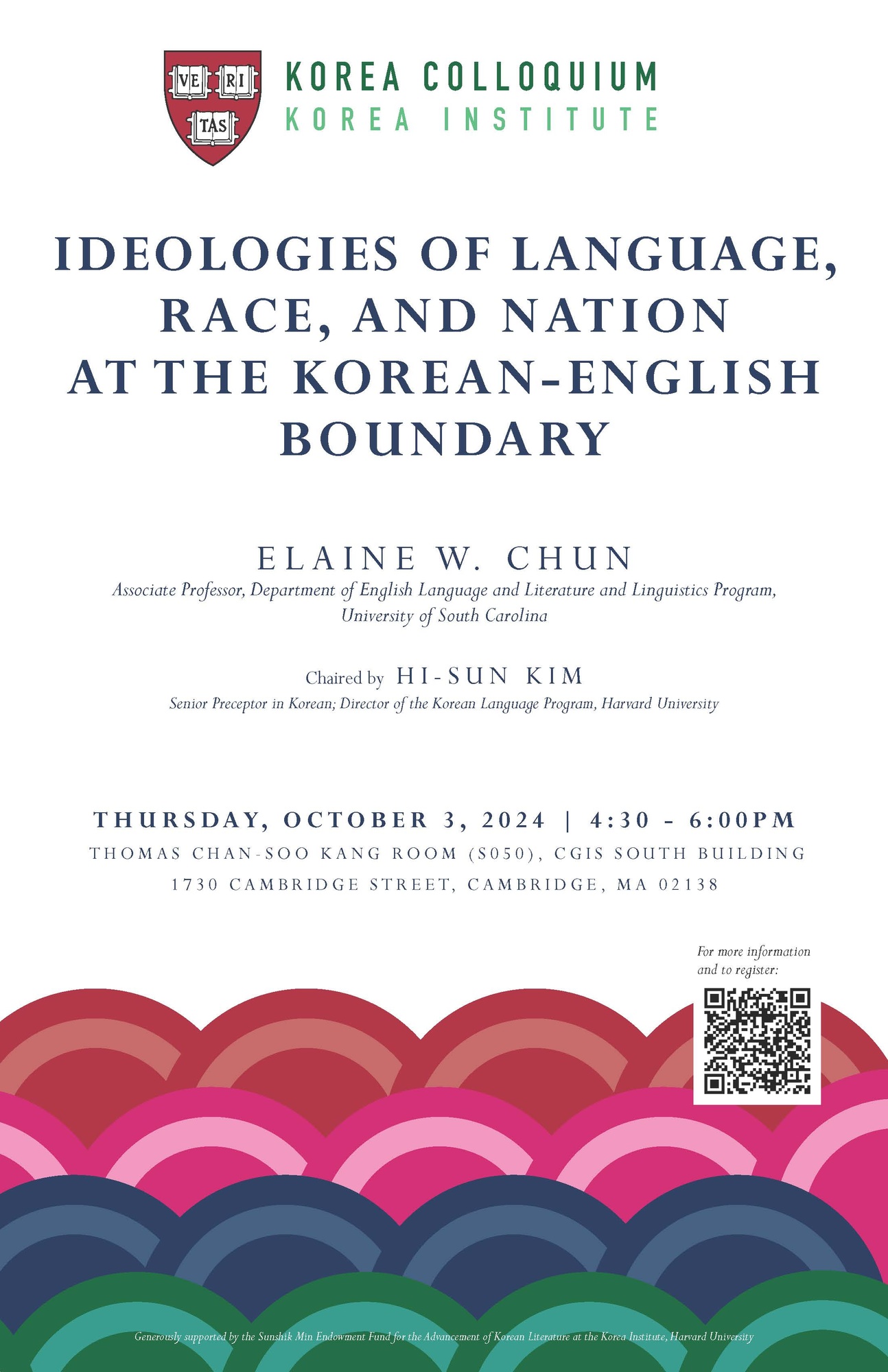time zone will be applied.
Report this post?

Date: Thursday, October 3, 2024, 4:30pm to 6:00pm
Location: Thomas Chan-Soo Kang Room (S050), CGIS South Building, 1730 Cambridge Street, Cambridge, MA 02138
Korea Colloquium
Elaine Chun is an associate professor of Department of English Language and Literature and Linguistics Program at the University of South Carolina. Her research examines ideologies of language, gender, race, and racism primarily in the context of Asians and Asian Americans in the United States. Drawing on methods of interactional analysis and ethnography, she has investigated how racializing discourses, as well as discourses that critique racializing language, circulate and shift across various institutional spaces, including social media, news media, and universities. Her work has appeared in Language in Society, Journal of Linguistic Anthropology, Pragmatics, Language & Communication, American Speech, Applied Linguistics, and Discourse & Society.
Chaired by Hi-Sun Kim, Senior Preceptor in Korean; Director of the Korean Language Program, Harvard University
Abstract:
In 2021, the Oxford English Dictionary published a quarterly update that included twenty-six “words of Korean origin.” These lexical additions were celebrated across the globe, as they were understood as marking a significant South Korean achievement (Ahn and Kiaer 2024): an identifiable collection of Korean words had, according to the OED, now become a part of English. Yet it is also the case that not all communities have welcomed the use of Korean-origin words in English-dominant contexts, especially when the user is not identifiably Korean and when the usage is framed as a problematic case of “appropriation” that has racializing implications (cf. Yoo 2023). Drawing on linguistic anthropological tools of discourse analysis and a broad collection of metalinguistic commentary that has circulated in public space over the past decade—English-language newspapers, South Korean government press releases, and social media posts—this talk examines disparate evaluations of the use of “Korean words” by “English” users. How do these discourses converge and diverge in terms of their ideologies of language, nation, and race? How have these ideologies shifted over the years? I show how the contours of these discourses are partially explained by the ideologies that they presuppose, while they are fundamentally guided by the moral and political interests that these evaluative stances serve (Irvine 1989).
***
Generously supported by the Sunshik Min Endowment Fund for the Advancement of Korean Literature at the Korea Institute, Harvard University
For more information, visit the website here